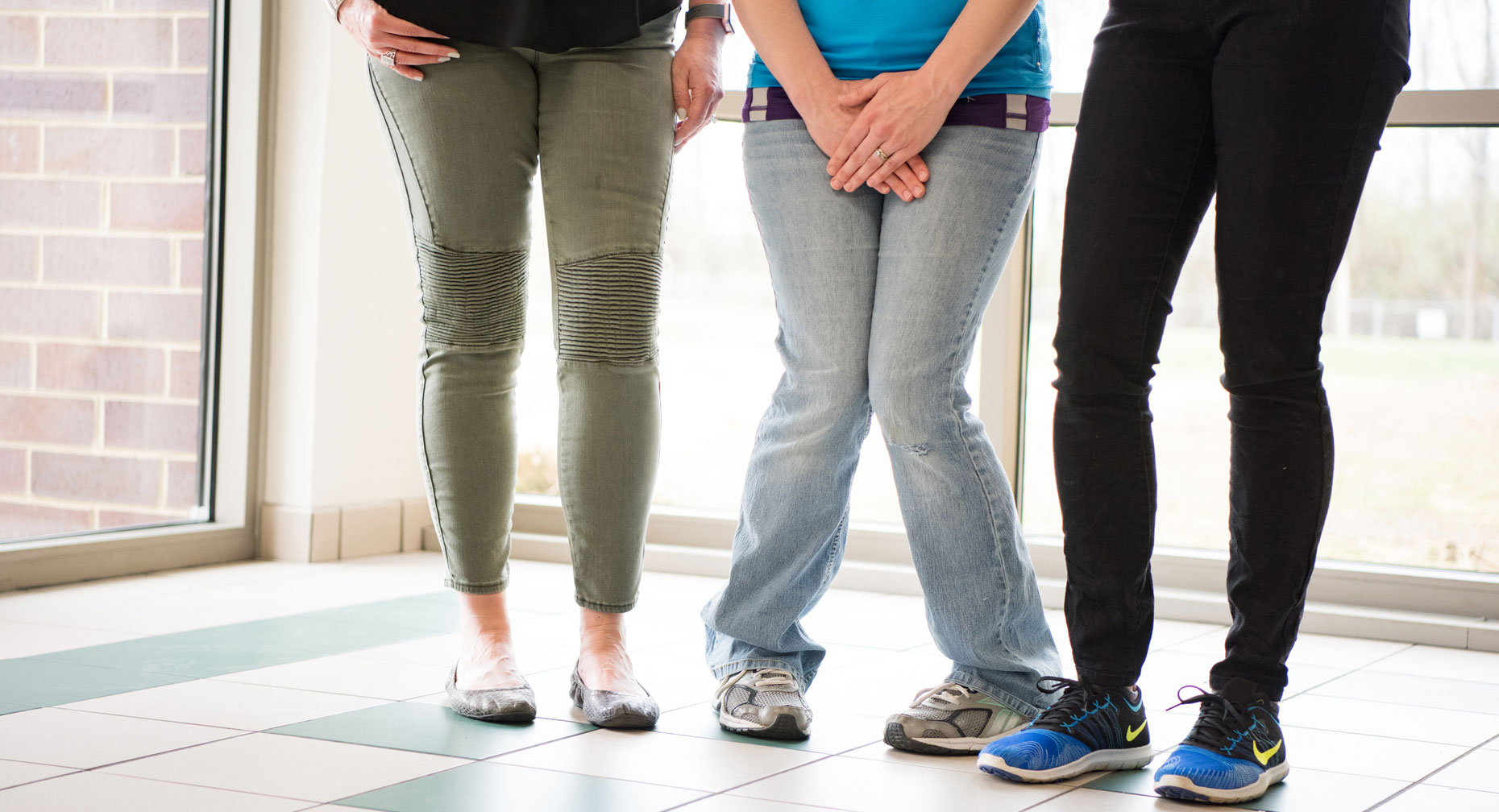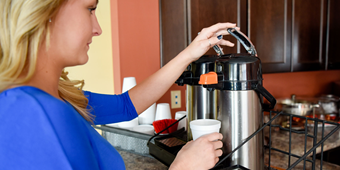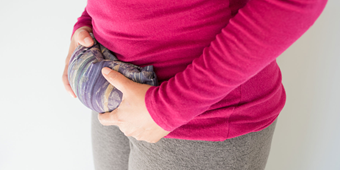Beat Bladder Issues with Botox, Other Medicines

Find Your Perfect Match
Answer a few questions and we'll provide you with a list of primary care providers that best fit your needs.
Many women don’t talk about it, but urinary incontinence and overactive bladder are common problems that can be embarrassing and life altering. Urine leakage and the loss of bladder control are not a normal part of aging. They are medical issues that should and can be treated.
Urinary incontinence happens when the brain does not properly signal the bladder, the sphincters do not squeeze strongly enough, or both. The bladder muscle may contract too much or not enough because of a problem with the muscle itself or the nerves controlling the bladder muscle.
Treating incontinence with medicine can reduce or stop the muscle spasms and urine leakage caused by overactive bladder.
Botox: The Newest Medicine
The newest medicine for urinary incontinence is Botox. Yes, the same Botox used to relax wrinkles.
Botox (onabotulinumtoxinA) is also called botulinum toxin type A. Botox works by blocking acetylcholine and relaxing muscles for long periods of time. It can be effective for up to 10 months in treating overactive bladder. Botox is used for overactive bladder when other medicines are not effective.
Here's how it works: Your doctor injects Botox into the bladder using cystoscopy. Cystoscopy lets the doctor see the inside of the bladder while injecting the Botox. This procedure can be performed in the doctor’s office. You are given a local anesthetic to ease any pain.
Botox:
- Relaxes the bladder muscles
- Increases the bladder’s storage capacity
- Reduces episodes of urinary incontinence
Two clinical trials proved Botox to be safe and effective for treating overactive bladder, says the Food and Drug Administration. Studies with 1,105 patients found that after 12 weeks patients treated with Botox:
- Reported fewer episodes of urinary incontinence
- Urinated less often
- Could hold larger amounts of urine in their bladders
Side effects reported during clinical trials included:
- Urinary tract infections
- Painful urination
- Incomplete emptying of the bladder (urinary retention)
Patients with urinary retention may need to use a catheter until the problem resolves. Botox treatments can be repeated up to every 12 weeks.
Be sure to check with your insurance company before undergoing a Botox treatment for overactive bladder. Because the treatment is new it may not be covered by all health insurance plans.
Other Treatments for Overactive Bladder
Different kinds of medicines are used to treat overactive bladder. Some medicines relax your bladder and stop the involuntary contractions that create the urge to urinate. Other medicines strengthen the tissues around your bladder to improve bladder control.
Anticholinergics: These medicines are the largest class of drugs used to treat urinary incontinence. Like Botox, anticholinergics block acetylcholine. This is a chemical that tells the bladder to contract. By blocking acetylcholine, these medicines calm the muscle spasms that cause urine leakage. A relaxed bladder can hold more urine.
Medicines in this class include:
- Oxybutynin (Ditropan XL, Oxytrol)
- Tolterodine (Detrol, Detrol LA)
- Darifenacin (Enablex)
- Trospium (Sanctura)
- Fesoterodine (Toviaz)
- Solifenacin (VESIcare)
Anticholinergic medicines are available in pill, liquid and patch form. The most common side effects of anticholinergic drugs are:
- Dry mouth
- Blurry vision
- Constipation
Seniors have the highest risk of side effects from these medicines. Anticholinergics may cause drowsiness and an increased risk of falls in seniors. Oxybutynin may cause more side effects than the other medicines, but taking the extended-release form may reduce some of these effects.
Beta-3 adrenergics: Mirabegron (Myrbetriq) is a medicine taken by mouth. It relaxes the smooth muscle in the bladder walls, reducing involuntary bladder contractions. This medicine helps you hold more urine. The most common side effect of mirabegron is high blood pressure.
Mirabegron interacts with several other drugs. Be sure to talk with your doctor about all the medicines you use.
Antidepressants: If other medicines for overactive bladder do not work for you, your doctor may recommend an antidepressant. Normally used to treat depression, these medicines can relieve some incontinence symptoms by calming certain nerve signals.
The antidepressants used for overactive bladder are desipramine and imipramine, which are taken orally. They can:
- Relax the bladder muscles
- Contract muscles at bladder neck
- Reduce the urge to urinate
- Control leakage
- Improve bladder control
The newest medicine for urinary incontinence is Botox. Yes, the same Botox used to relax wrinkles.
Side effects of these medicines include:
- Drowsiness
- Fatigue
- Anxiety
- Decreased sex drive
Since these medicines cause sleepiness, they are a good choice for treating nighttime incontinence.

Anti-spasmodic medicine: Flavoxate is the only medicine in this class. It’s an oral drug that reduces bladder spasms. This is an older medicine and it may not be as effective as newer treatments for overactive bladder.
Keep Living Your Life
Overactive bladder and urinary incontinence should not take over your life or stop you from doing the things you enjoy. You can work with your doctor to control your symptoms and potentially stop them.
It’s important to know that a combination of lifestyle changes and medicines may be needed to treat your overactive bladder.
If your doctor recommends a medicine, be sure to follow the prescription directions and to report any side effects. You could develop a urinary tract infection that needs to be treated with antibiotics or your dosage may need to be adjusted.
Finally, remember to be patient. It may take time to find the right dosage and treatment combination that works for you.
Find Your Perfect Match
Answer a few questions and we'll provide you with a list of primary care providers that best fit your needs.
Source: Food and Drug Administration; National Institutes of Health; Healthline




